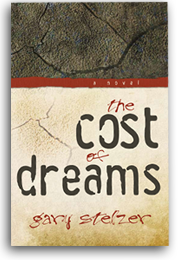I was born and raised on the north Texas plains in the post WWII years. My parents had survived the horrors of the Great Depression and then the frightful displacement and violence that had taken the lives of so many millions in the world war. Events that left them fearful all their lives of a sudden and unexplained return to the near destitution that they’d known in the 1930’s.
Post war rural educational offerings in that time and place were very limited. As a late teen, I found my way to a great state university, whose student population was about 25 times the size of my hometown. I graduated in four years with an English lit degree and met an extraordinary woman with roots in Chicago. We moved to the northern Midwest and married and raised three children.
I had decided to study medicine and graduated from University of Minnesota Medical School in Minneapolis, afterwards finishing a residency in family medicine at the University of Wisconsin program in Eau Claire, Wisconsin.
I worked as a doctor in a small city in the northern Midwest for almost 30 years. It was a very interesting and consuming line of work. All those years, I saw ever-greater hardships of working people struggling to afford healthcare and increasingly even the bare necessities of a modern existence. I was appalled at the fate of a local dairyman, who had taken his wife to a larger city for heart surgery, a woman who died at their home within a few months of her operation. After which, the old man stopped at my office one day to report that his farm had been foreclosed to pay her surgical bills, and that he’d lost the accumulated wealth of his entire life’s work.
More recently, I’d begun to see homelessness with individuals attempting to survive living in their cars in the North Country. Persons for whom access to healthcare had long since been out of the question, but for dire emergencies.
As a doctor, my work to relieve pain and misery had been turned on its head in a living contradiction: the more I rang up the charges at my office, the greater the debt I added to my patients’ financial struggle to survive. And the more likely I’d find them on the foreclosure pages in the legal section of our regional papers. I found it undeniable that we are all of us living in an ill social setup, one in which the very few own most all the societal assets, and the very many own less and less.
I have always enjoyed working with the English language. And, thus I decided to change jobs and to write a series of novels about the downtrodden of humankind struggling to survive in an unjust and ill social order, oftentimes with great dignity, and sometimes not.


